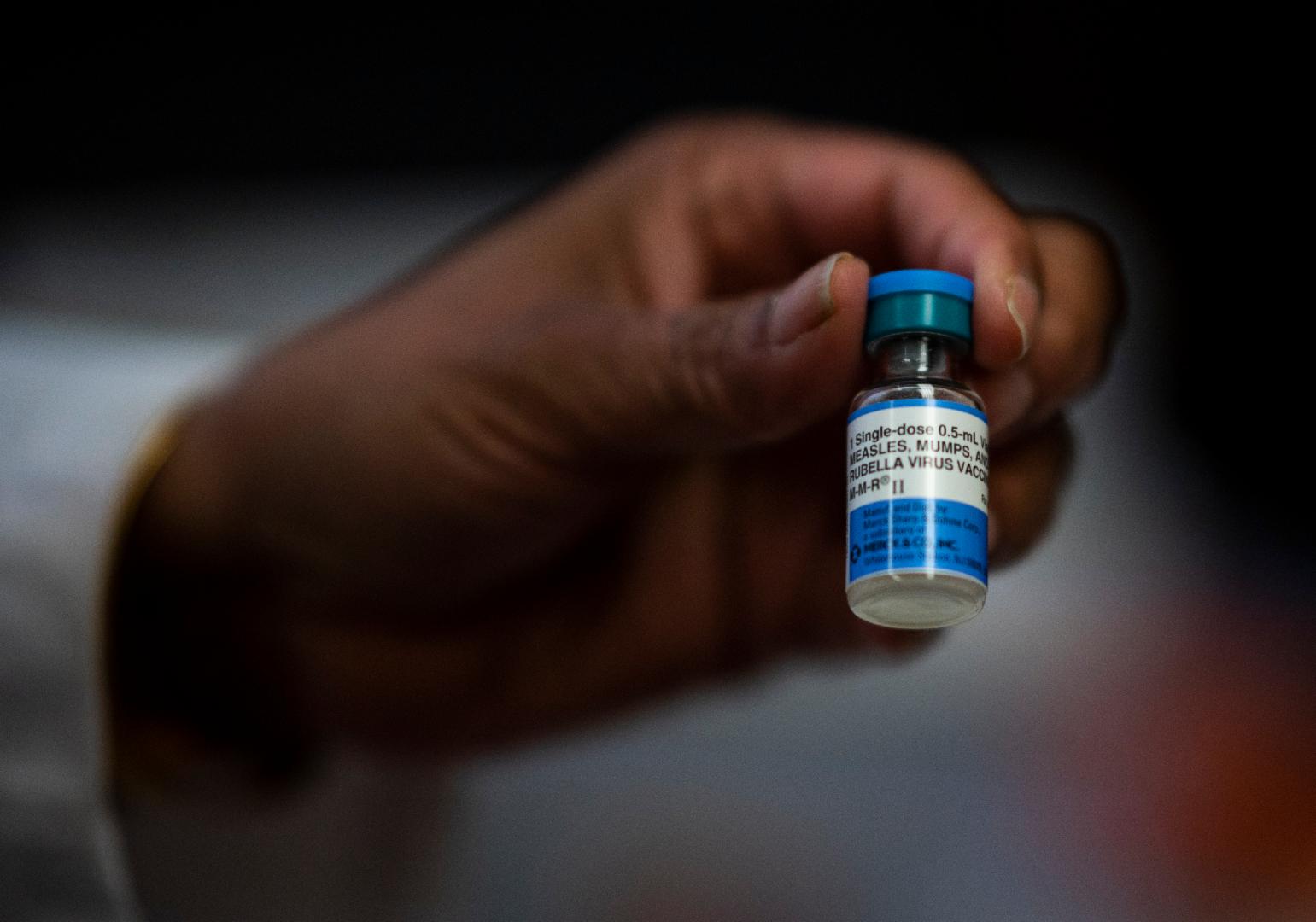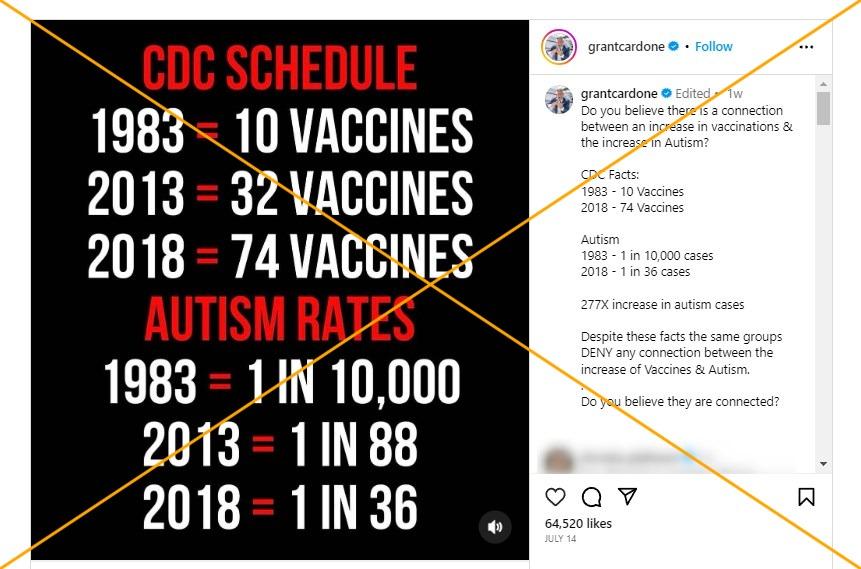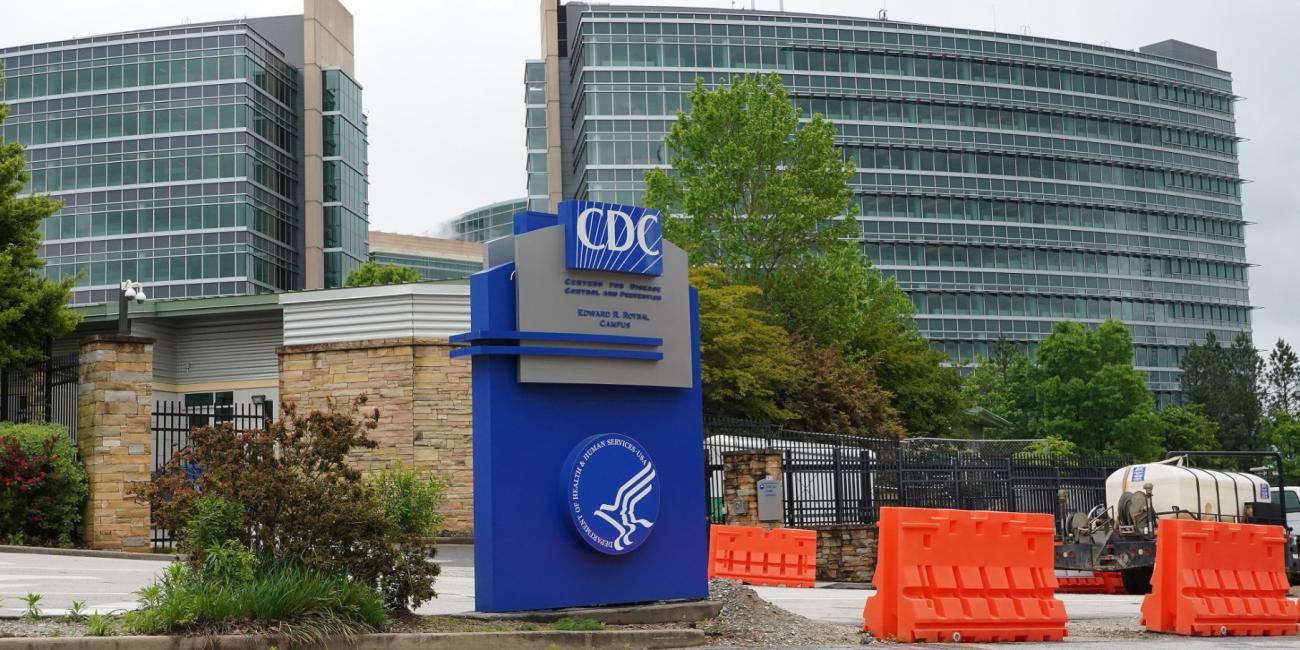
Posts falsely link CDC vaccine schedule to rising autism rates
- This article is more than two years old.
- Published on July 25, 2023 at 22:13
- 4 min read
- By Daniel FUNKE, AFP USA
"Do you believe there is a connection between an increase in vaccinations & the increase in Autism?" asks Grant Cardone, an American entrepreneur and author, in a July 14, 2023 Instagram post.
The post claims that between 1983 and 2018, the US Centers for Disease Control (CDC) added 64 vaccines to its immunization schedule. During the same time frame, autism rates supposedly increased from one in 10,000 to one in 36.
"277X increase in autism cases," Cardone says in the caption on his post, which accumulated more than 64,000 likes. "Despite these facts the same groups DENY any connection between the increase of Vaccines & Autism."

Other posts sharing the figures accumulated tens of thousands of interactions across Instagram and Facebook, according to CrowdTangle, a social media insights tool. Similar claims have spread on TikTok and Twitter, which is being rebranded as "X."
"If you look at this and see no Correlation you're a special typed (sic) of person," says Brandon Vera, an American mixed martial artist, in a July 14 Instagram post with more than 2,800 likes.
Claims linking vaccination to autism have circulated online for decades. AFP has previously debunked versions of the theory.
Similarly, the posts from Cardone and others are misleading -- the CDC's Immunization Safety Office told AFP that vaccines "do not cause autism."
"All vaccines are closely monitored for safety before licensure and safety monitoring is on-going after licensure," the office said in a statement emailed July 24. "There is no data to indicate a causal association between vaccines and autism."
'No evidence of a link'
Claims that childhood vaccines cause autism date back to a 1998 article published in The Lancet, a peer-reviewed medical journal. British doctor Andrew Wakefield linked the measles, mumps and rubella (MMR) shot -- typically administered to infants and young children -- to autism.
However, The Lancet retracted the study in 2010 after it was found to have included falsified data. British medical authorities later pulled Wakefield's license to practice medicine.
"Unfortunately, its publication set off a panic that led to dropping immunization rates, and subsequent outbreaks of these diseases," the World Health Organization says on its website (archived here).
Research conducted since the publication of Wakefield's paper has shown childhood vaccines do not cause autism:
- A 2002 study (archived here) found that among 537,303 Danish children, 82 percent of whom had received the MMR vaccine, the risk of autism was the same in both the vaccinated and unvaccinated groups.
- In 2009, researchers from the Children's Hospital of Philadelphia examined seven studies looking at a possible association between thimerosal, a mercury-based preservative in vaccines, and autism. All of them failed to support the link (archived here).
- A 2013 CDC study (archived here) found the amount of antigens, substances in vaccines that trigger the body's immune response, received during the first two years of life did not increase a child's risk of developing autism.
In 2012, the National Academy of Medicine reviewed the safety of eight vaccines administered to children and adults -- including the MMR and diphtheria, tetanus, and pertussis (DTaP) shots, both of which are on the CDC's immunization schedules (archived here and here).
"While no vaccine is 100 percent safe, very few adverse events are shown to be caused by vaccines," the National Academy of Medicine said in its report (archived here). "In addition, the evidence shows that vaccines do not cause several conditions."
CDC immunization schedules
Cardone's post also misleads on the history of CDC-recommended vaccines.
Between 1985 and 1994, the schedule included five shots, according to a College of Physicians of Philadelphia timeline (archived here). By 2006, that number had jumped to 12.
As of July 25, there were 20 vaccines on the CDC's immunization schedule for children and adolescents (archived here), most of which require multiple doses and some that can be offered in combination shots. The adult schedule (archived here) had 19 shots.
All vaccines on the CDC's immunization schedule undergo a rigorous testing and approval process prior to being added. A 2013 examination of the recommended childhood shots (archived here) uncovered no evidence of major safety concerns.
"Vaccines are recommended by CDC's Advisory Committee on Immunization Practices and endorsed by professional organizations because vaccines save lives and prevent morbidity, and the benefits of vaccination outweigh the risks of adverse events," the CDC Immunization Safety Office told AFP.
The agency estimated that the vaccination of children born between 1994 and 2021 helped prevent more than one million deaths (archived here).
Autism prevalence
The CDC estimates about one in 36 children has autism spectrum disorder (ASD) -- a proportion more than four times higher than two decades ago (archived here). Researchers have found a similar global trend.
ASD is a "developmental disability caused by differences in the brain," the CDC says on its website (archived here). Some of those differences can be genetic or environmental, while others are unknown.
A few studies (archived here) estimate the prevalence of ASD in the 1980s was far less than it is today. But there are several potential reasons for the subsequent spike that have nothing to do with vaccination.
"The most obvious explanation is that this is a much better-recognized phenomenon, much more discussed phenomenon," said Paul Offit, director of the Vaccine Education Center at Children's Hospital of Philadelphia. "So, there are many more tools out there for educators and clinicians to recognize and at least provide services for this disorder."
A 2022 review of autism prevalence worldwide (archived here) pinned the rise on multiple factors, including "the increase in community awareness and public health response globally, progress in case identification and definition and an increase in community capacity."
Another potential explanation is the "clear correlation between paternal age and the diagnosis of autism," Offit said.
"So then the question becomes: Has paternal age increased over the past, say, 40 or 50 years? And the answer is yes," he said. "Those are the kinds of things that make sense because there clearly is a correlation."
Other independent fact-checking organizations have also debunked claims linking rising autism rates to childhood vaccination. More of AFP's reporting on vaccine misinformation is available here.
Copyright © AFP 2017-2026. Any commercial use of this content requires a subscription. Click here to find out more.
Is there content that you would like AFP to fact-check? Get in touch.
Contact us




